Visa Guide
Freelancing on an F1 Visa: Maximizing the Opportunities
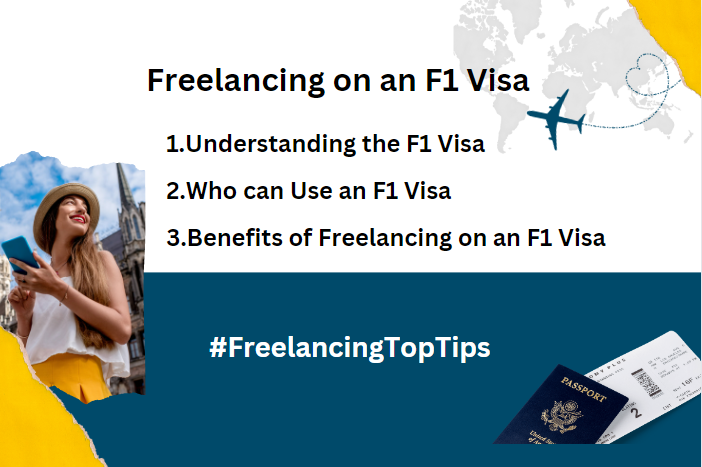
Freelancing on an F1 Visa is a complex process that requires careful consideration of the available options. Are you an international student with an F1 visa attending school in the United States? Are you thinking about freelancing as a way to get experience and make extra money while you’re in school? If so, you might wonder if you can work as a freelancer on an F1 visa. We’ll explore the subject in this article, looking at the options and revealing what you need to know.
Understanding the F1 Visa: Freelancing on an F1 Visa
Let’s first discuss what an F1 visa is and what it allows for before we get into freelancing while on one. International students can study at recognized educational institutions in the U.S. with an F1 visa and a non-immigrant student visa. This visa’s primary goal is to give students the freedom to pursue their academic objectives and engage in cross-cultural interactions.
Can a person with an F1 visa freelance? Freelancing on an F1 Visa
Freelancing on an F1 Visa is complicated. Even though the F1 visa does not expressly forbid freelancing, there are some limitations and things to remember. Let’s eliminate it:
Employment Restrictions: Freelancing on an F1 Visa
As a holder of an F1 visa, your primary priority should be your education. You can only work in certain occupations while holding an F1 visa, according to strict restrictions set by the U.S. Citizenship and Immigration Services (USCIS). Typically, during the academic year, F1 students are only permitted to work a maximum of 20 hours per week on campus; however, during approved breaks and vacations, they can work full-time.
Curricular Practical Training (CPT): Freelancing on an F1 Visa
If your academic program includes an internship or cooperative education opportunity, you might be qualified for the CPT. With CPT, F1 students can maintain their visa status while working off-campus in a discipline related to their studies. However, CPT is restricted and needs to be approved by your Designated School Official (DSO).
Optional Practical Training (OPT): Freelancing on an F1 Visa
OPT is another option for finding work while you are a student. After completing their studies, OPT enables F1 students to work off-campus. OPT allows you to work in your field of study for up to 12 months (or 24 months if you have a STEM degree). OPT, however, needs your DSO’s permission, just like CPT.
Freelancer vs. Employee: Freelancing on an F1 Visa
It’s critical to comprehend the difference between being a freelancer and an employee necessary to understand the difference between being a freelancer and an employee when thinking about freelancing. Although freelancing might seem more flexible, it also has its guidelines. To ensure your freelancing activities follow sure your freelancing activities follow to visa requirements, you should speak with an immigration attorney or your DSO.
Tax Considerations: Freelancing on an F1 Visa
Freelancing involves earning money, so you must understand how the U.S. tax system works. You might have to pay taxes depending on your income and the type of work you do while holding an F1 visa. Understanding your tax responsibilities and seeking advice from a tax expert is essential to avoid legal trouble.
Play exciting games by clicking this link.
Who Can Use an F1 Visa? Freelancing on an F1 Visa
Eligibility Criteria
To be eligible for an F1 visa, you must meet specific criteria:
Acceptance into an Accredited Institution
Before enrolling in a U.S. institution, such as a university, college, language school, or vocational school, you must first be there. To accept international students, the institution needs to have Student and Exchange Visitor Program (SEVP) authorization.
Enrolment in a Full-Time Program
You must enroll in a full-time academic program, which typically calls for a minimum of 12 hours of study per week for graduate students and 18 hours for undergraduates. The course of study must result in a degree, diploma, or certificate.
Sufficient Financial Resources
You must show that you have enough money to pay for your program’s tuition, living costs, and other educational costs during that time. Some examples are personal funds, scholarships, sponsorships, and financial aid.
Strong Ties to Your Home Country
You must show strong ties to your home country, such as family, property, or a job, to prove your intention to return after finishing your studies. It demonstrates your non-immigrant intent, which is essential for obtaining an F1 visa.
Benefits of Freelancing on an F1 Visa
While the F1 visa is for students, there are some advantages that freelancers can take advantage of while studying in the U.S.:
Get Practical Experience in Your Field
Working as a freelancer can help you get practical experience in the subject of your choice. You can apply the knowledge and abilities you’ve learned in the classroom to real-world situations by taking on freelance projects, improving your knowledge and proficiency in your area of interest.
Building a Professional Portfolio
Working as a freelancer enables you to amass various projects highlighting your abilities, creativity, and achievements. This portfolio can help showcase your skills to prospective employers or clients when looking for future employment opportunities.
Opportunities for networking
As a freelancer, you can connect with experts and potential customers. Expanding your professional network and creating new career opportunities can be accomplished by interacting with people who can provide mentorship, advice, or future collaboration opportunities.
Flexibility and Independence
Working as a freelancer on an F1 visa gives you the independence to schedule and complete your projects. You are free to decide what kinds of projects you want to work on, how much you want to, and how to create a work-life balance that works for you.
Income Generation
While you are in school, freelancing may be a source of income. During your stay in the United States, this can help with your living expenses, help pay for your education, or give you financial independence.
Career Advancement and Skill Development
Working as a freelancer enables you to improve your skills continuously. You can broaden your knowledge, hone your problem-solving skills, and gain exposure to various field facets by taking on multiple projects. Your long-term success and career advancement can both benefit from these experiences.
Conclusion: Freelancing on an F1 Visa
Freelancing on an F1 visa is possible, but exercising caution and following all USCIS guidelines is essential. Your studies should always be your top priority, and any employment or freelance work should support your academic objectives. Consult your DSO or an immigration lawyer before starting a freelance business to ensure all visa requirements. With the right advice and knowledge, you can navigate the freelance world while keeping your F1 visa status. Remember that the education and experience you gained while living in the U.S. are priceless assets that can influence your future—managing your studies. At the same time, freelancing can be rewarding because it allows you to learn valuable skills and pursue your interests.
Tuba Mariam
Tuba Mariam is a skilled psychologist and accomplished article writer passionate about understanding the human mind and communicating valuable insights through the written word. Tuba’s diverse background and expertise in psychology and writing allow her to bridge the gap between scientific research and practical application. Tuba has gained extensive experience in psychology through her work as a psychologist. She analyses the deep understanding of psychological aspects of life.
Freelancing
Portugal Freelance Visa 2023- Ultimate Victory in Freelancing
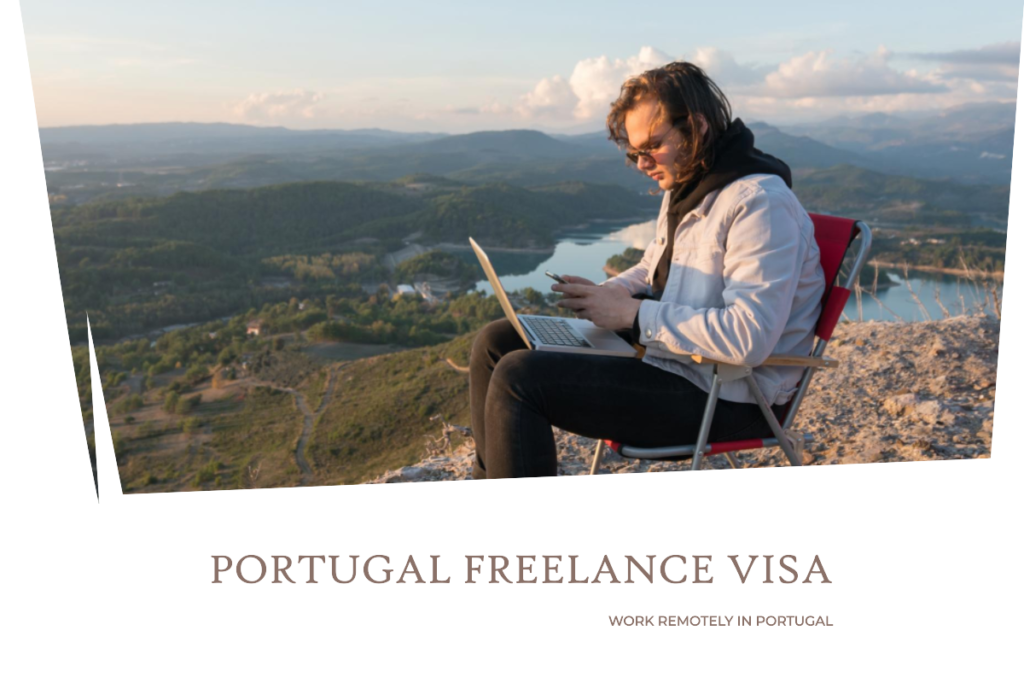
In the dynamic landscape of modern work, freelancing has emerged as a powerful career choice, offering flexibility, autonomy, and the ability to work from anywhere. The Portugal Freelance Visa presents an enticing opportunity for those seeking to explore this avenue while embracing the allure of a new culture. This article delves into the details of this visa, highlighting its benefits, application process, and how it can lead to a successful freelancing journey in Portugal.
The Portugal Freelance Visa – A Gateway to Work and Adventure
Imagine waking up to the sun-kissed beaches of Portugal, sipping coffee in charming cobblestone streets, and working on your freelance projects with the backdrop of historic architecture. This isn’t just a dream; it’s the reality that the Portugal Freelance Visa can offer. As the world embraces remote work, Portugal has gone a step further to welcome freelancers from around the globe with open arms.
Understanding the Portugal Freelance Visa
The Portugal Freelance Visa is a special permit that allows freelancers and remote workers to live and work in this picturesque European nation. The allure of Portugal isn’t limited to its stunning landscapes; it’s also a hub for digital nomads seeking a balance between work and leisure. With the visa, freelancers can tap into a network of like-minded individuals, access co-working spaces, and immerse themselves in the vibrant local culture.
Benefits of Freelancing in Portugal
A Haven for Freelancers
Portugal isn’t just a tourist destination; it’s also a thriving freelance hotspot. The country’s cost of living is significantly lower than many Western nations, making it an attractive option for freelancers looking to optimize their earnings. With a diverse range of landscapes, Portugal offers an array of experiences, from Lisbon’s historic streets to the Algarve’s scenic beaches.
Statistics
Portugal also boasts impressive statistics: it’s been recognized as one of the most peaceful countries in the world, with a high quality of life index. In 2020, Lisbon ranked 6th globally in the Digital Nomad Index, underlining its appeal for remote workers.
Navigating the Application Process
Understanding the application process is essential to embark on your Portugal Freelance Visa journey. The process involves submitting documents, including proof of income, health insurance, and criminal record clearance. The visa application is processed within a reasonable time frame, making the transition to freelancing in Portugal smoother than ever.
To play exciting games and win greater rewards, click here.
Portugal Freelance Visa Types and Costs
For digital nomads, the following visa types are available.
1. Temporary Stay Visa

2. D7 Passive Income Visa
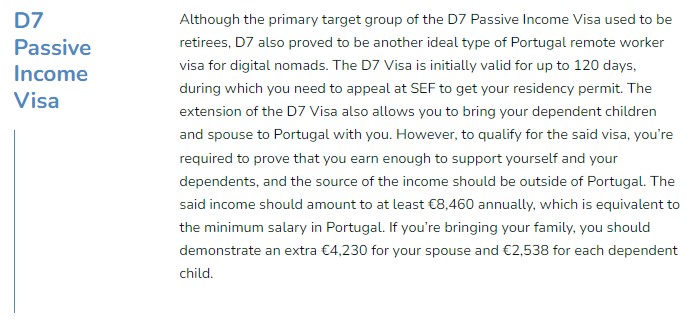
3. D2 Entrepreneur Visa
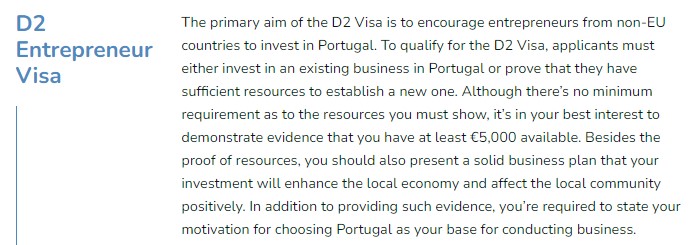
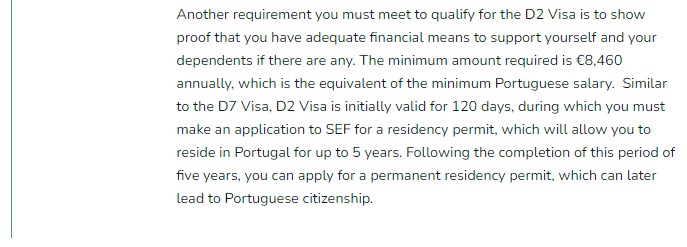
4. Portugal Golden Visa

4.1 Investment Options for Portugal Golden Visa

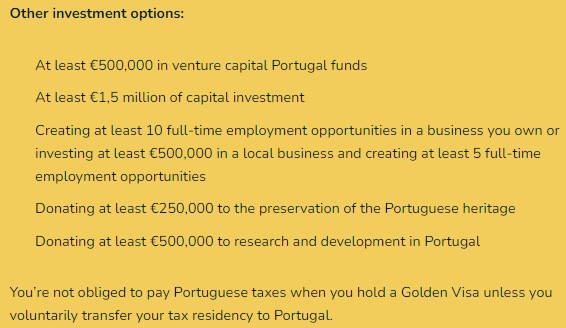
Legal Requirements and Obligations
Freelancing Responsibly in Portugal
While Portugal offers an inviting atmosphere for freelancers, adhering to legal requirements is crucial. This includes registering as a freelancer, obtaining a Portuguese taxpayer number, and adhering to tax regulations. Staying compliant ensures a seamless experience as you navigate your freelancing career in this European gem.
Seizing Freelancing Opportunities in Portugal
Portugal’s diverse economy provides ample opportunities for freelancers across various industries. Whether you’re a content creator, graphic designer, or software developer, the country’s growing tech scene offers a fertile ground for projects. Co-working spaces and networking events facilitate connections with potential clients and collaborators.
Elevating Your Freelancing Journey
Thrive in Portugal’s Freelancing Landscape
Consider optimizing your work-life balance to make the most of your freelancing journey in Portugal. Embrace the Portuguese way of life by exploring local markets, indulging in traditional cuisine, and engaging with the welcoming community. Leverage social media platforms to connect with fellow freelancers and discover local events that align with your interests.
Conclusion – Embrace the Portugal Freelance Visa Experience
The Portugal Freelance Visa beckons as a transformative opportunity in a world where freelancing transcends borders. With its inviting landscapes, rich culture, and business-friendly environment, Portugal offers an idyllic backdrop for freelancers seeking professional growth and personal fulfillment. From pristine beaches to thriving cities, this nation provides a canvas for a rewarding freelancing journey.
As you contemplate your next freelancing move, keep Portugal on your radar. Its embrace of the freelance community and its commitment to fostering a conducive environment make it ideal for those seeking the ultimate pathway to freelancing success. Don’t just dream; make Portugal your freelancing reality and embark on a journey that merges work with adventure.

Mr. Qasim Bajwa
Qasim Bajwa, a talented writer, combines his expertise in computer science with his creative flair to produce captivating content. Over the past five years, he has honed his skills as a writer, with two years of general writing experience and four months specializing in web content creation. His diverse skill set allows him to excel in various writing domains.
Freelancing
Freelancing for U.S. Immigration – The American Dream Hack 2023
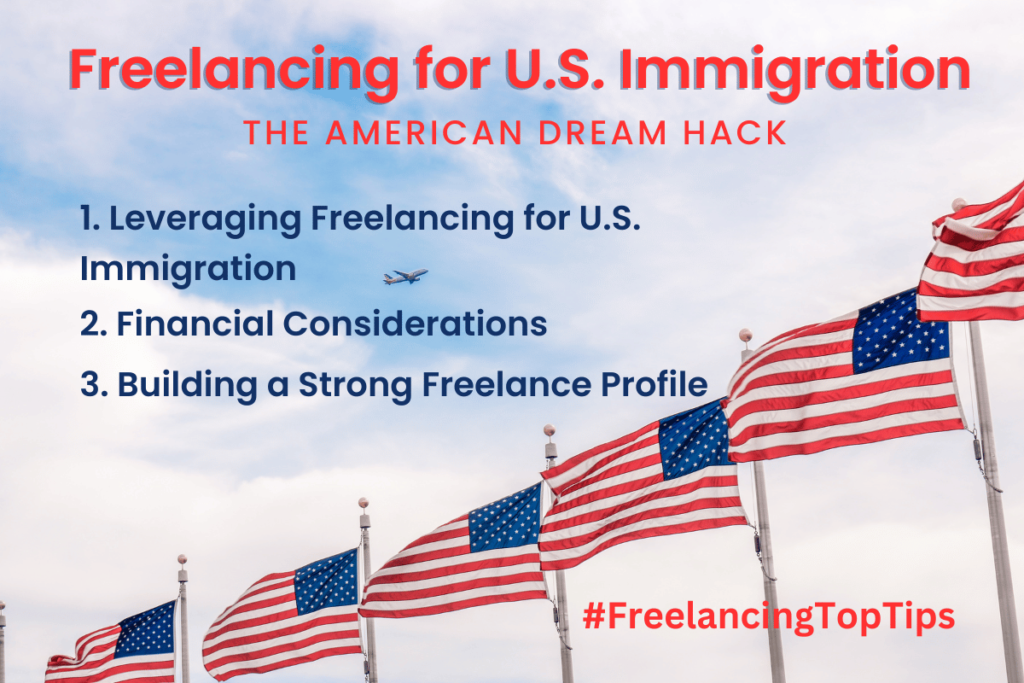
Welcome to the world of freelancing, where dreams meet opportunities and ambitions find a pathway to U.S. immigration. This comprehensive guide will explore how freelancing can unlock the doors to your American Dream. From understanding the U.S. immigration system to building a solid freelance profile, networking, and overcoming challenges, we’ll guide you through the process step by step. So, let’s embark on this transformative journey of freelancing for U.S. immigration and discover the hack to making your dreams a reality.
1. Understanding Freelancing for U.S. Immigration System
Navigating the complex U.S. immigration system can be overwhelming, but you have unique options as a freelancer. One essential visa category to explore is the O-1 visa for extraordinary ability, ideal for freelancers with exceptional skills and achievements. Additionally, The B-1 Business Visitor Visa allows freelancers to engage in temporary business activities in the U.S. At the same time, the E-2 Investor Visa offers opportunities for those who want to invest in and manage a U.S. business. Understand each visa’s requirements, eligibility criteria, and processes to make informed decisions.
2. Is the U.S. a Popular Destination?
Regarding freelancing for U.S. immigration, the United States stands out as a highly sought-after destination. The allure of the U.S. stems from its reputation as a global hub for entrepreneurship and creativity. From bustling cities like New York and San Francisco to emerging tech hubs like Austin and Seattle, freelancers can tap into a vast network of potential clients and collaborators. The country also has a robust legal framework and support systems for independent workers.
In addition to the professional appeal, the U.S. boasts a rich cultural intricacy and diverse communities. Freelancers can immerse themselves in American life, experience different traditions, and engage with a melting pot of ideas and perspectives. Freelancing for U.S. immigration is an attractive prospect for freelancers worldwide. The U.S. offers a fertile ground for professional growth, abundant opportunities, and a rich cultural experience.
3. Leveraging Freelancing for U.S. Immigration Success
Freelancing offers a ton of benefits when it comes to immigration. You can attract potential employers or clients who may sponsor your visa by showcasing your skills, expertise, and value as a freelancer. Working remotely and collaborating globally gives you an edge in the competitive U.S. job market. Position yourself as a valuable asset by highlighting your contributions and impact in your field. Showcase your success stories, awards, and testimonials to demonstrate your abilities.
4. Building a Strong Freelance Profile
Crafting a compelling freelance profile is essential for grabbing attention and boosting credibility. Start with a captivating headline that showcases your expertise in your chosen field. Share a concise summary highlighting your unique selling points and passion for freelancing for U.S. immigration. Describe your skills, experience, and qualifications in a way that resonates with potential clients or employers. Include relevant keywords such as ‘Freelancing for U.S. Immigration’ to optimize your profile for search engines. Showcase your achievements, testimonials, and successful projects to demonstrate your expertise and capabilities.
To get exciting gaming experiences, keep visiting this link.
5. Networking and Collaboration – Freelancing for U.S. Immigration
Networking is a vital aspect of freelancing for U.S. immigration. Connect with professionals in your industry through networking events, conferences, and online platforms. Build meaningful relationships with potential clients, employers, or collaborators who can provide valuable opportunities and support. Engage in discussions, share insights, and establish yourself as a reliable and valuable resource in your field. Join industry-specific groups or associations to expand your network and stay updated on industry trends and opportunities.
6. Financial Considerations When Planning Freelancing for U.S. Immigration
Managing finances as a freelancer immigrating to the U.S. requires careful planning. Understand the tax obligations specific to freelancing and the U.S. immigration system. Seek professional advice to ensure compliance and optimize your financial situation. Utilize financial tools and resources to help you manage your income, budget effectively, and save for your future. Establish a financial plan for short-term and long-term goals, ensuring stability and security during your freelancing journey.
6.1 O-1 Visa Costs
O-1 Visa is a petition-based nonimmigrant visa that costs $190.00 as a nonimmigrant visa application processing fee. Additionally, there may be a fraud prevention and detection fee of $500.00 for certain O-1 petitions.
6.2 B-1 Business Visitor Visa Costs
B-1 Business Visitor Visa is a non-petition-based nonimmigrant visa that costs $160.00 as a nonimmigrant visa application processing fee.
6.3 E-2 Investor Visa Costs
E-2 Investor Visa is a treaty trader/investor, Australian professional specialty category visa that costs $205.00 as a nonimmigrant visa application processing fee.
Note: All individuals applying for a visa must pay the necessary application processing fee corresponding to their chosen visa category unless exempted from the application fee requirement.
7. Overcoming Challenges – Embracing the American Dream
The path to U.S. immigration as a freelancer may present challenges. Still, you can overcome them with determination, resilience, and proper support. Stay informed about immigration policies and updates, and stay connected with fellow freelancers who have gone through similar experiences. Seek guidance from immigration experts specializing in freelancing for U.S. immigration, as they can provide valuable insights and assistance. Embrace the American Dream by seizing opportunities, adapting to the evolving landscape, and continuously refining your skills and expertise.
Conclusion
Freelancing for U.S. immigration is a unique pathway to achieving the American Dream. Through a deep understanding of the U.S. immigration system, leveraging freelancing for immigration success, building a solid freelance profile, networking effectively, and overcoming challenges, you can unlock a world of opportunities. Embrace the power of freelancing as your ticket to U.S. immigration and make your dreams a reality. Start your journey today and let the American Dream become your inspiring reality.
Visa Guide
Expanding Job Market: Top 5 Reasons for Freelancer Migration

In today’s ever-evolving job market, more and more professionals are freelancing to enjoy freedom and flexibility in their careers. This article delves into the fascinating phenomenon of freelancer migration to an expanding job market. We will explore the top 5 reasons freelancers draw towards these opportunities and their myriad benefits.
Understanding the Freelancer Migration Phenomenon – Expanding Job Market
Freelancer migration refers to the movement of independent professionals to an expanding job market in search of better opportunities. It is a global trend driven by the desire for growth, better-earning potential, and improved work-life balance. By examining relevant statistics and sensations, we can gain insights into this phenomenon and understand the factors influencing freelancers’ decision to relocate.
The Current State of the Job Market – Expanding Job Market
Before we delve into the reasons behind freelancer migration, it is crucial to grasp the present state of the job market. Many freelancers need help in local job markets, such as fierce competition and limited opportunities. However, the traditional employment landscape has significantly transformed with the rise of remote work. This shift has opened up new possibilities for professionals seeking alternative paths to employment.
Exploring the Factor of Expanding Job Market-Expanding Job Market
An expanding job market, characterized by rapid growth, increased demand, and emerging industries, hold immense appeal for freelancers. These markets provide fertile ground for independent professionals to thrive and excel in their respective fields. We can understand their allure by exploring the definition of expanding the job market, identifying sectors experiencing significant growth, and highlighting the opportunities and benefits they offer freelancers.
For an immersive gaming experience, visit this link.
Top 5 Reasons for Freelancer Migration – Expanding Job Market
Here we will delve into the five primary factors driving freelancer migration, shedding light on these markets’ allure and benefits.
Reason 1: Increased Demand for Freelancers in Emerging Industries-Expanding Job Market
One of the primary motivations behind freelancer migration is the surge in demand within emerging industries. These industries, such as technology, renewable energy, and digital marketing, offer exciting prospects for freelancers. As new sectors flourish, freelancers can tap into many rewarding projects and establish themselves as experts in their niche.
Reason 2: Access to a Wider Range of Clients and Projects
An expanding job market grants freelancer access to a diverse client base and a broader range of projects. This exposure to clients from various industries and backgrounds raises professional networks. It allows freelancers to work on exciting and innovative projects. The ability to choose from many opportunities fosters growth, creativity, and skill development.
Reason 3: Higher Earning Potential and Competitive Compensation in Expanding Job Market
Earning potential is crucial for freelancers, and an expanding job market offers higher compensation. The increased demand for freelancers in these markets drives up rates, enabling professionals to command competitive service fees. Higher earning potential allows freelancers to achieve financial stability and pursue their passions more comfortably.
Reason 4: Opportunities for Professional Growth and Skill Development
Freelancer migration provides invaluable opportunities for professional growth and skill development. Expanding job market offers advanced training programs, industry-specific workshops, and access to cutting-edge resources. Collaborating with industry experts and working alongside talented professionals fosters continuous learning, enabling freelancers to stay ahead of the curve and enhance their expertise.
Reason 5: Improved Work-Life Balance and Lifestyle Courtesy Expanding Job Market
Achieving a healthy work-life balance is a priority for many freelancers, and an expanding job market excels in providing flexible work arrangements and remote work options. These markets recognize the importance of quality of life factors, allowing freelancers to balance their professional commitments with personal pursuits. Choosing when and where to work contributes to overall satisfaction and well-being.
Factors to Consider Before Freelancer Migration
Professionals must consider several essential factors before embarking on a freelancer migration journey. Researching and identifying suitable expanding job market, understanding the legal and logistical requirements, assessing the cost of living, and evaluating lifestyle factors are all crucial steps in making an informed decision. This section will provide a comprehensive guide to help freelancers navigate the intricacies of migration effectively.
Conclusion
Freelancer migration to an expanding job market represents a transformative shift in the employment landscape. Professionals can make informed decisions about their career paths by understanding the top 5 reasons driving this phenomenon. An expanding job market offers many opportunities, increased earning potential, professional growth prospects, and a better work-life balance. Embrace the expanding job market, seize its possibilities, and embark on a fulfilling and prosperous freelance journey.
Bio
Qasim Bajwa is a skilled writer with a passion for crafting compelling content. With a background in computer science, Qasim has successfully merged his technical knowledge with his love for writing over the past five years. With two years of experience as a writer and four months as a web content writer, Qasim brings a diverse skill set.
-
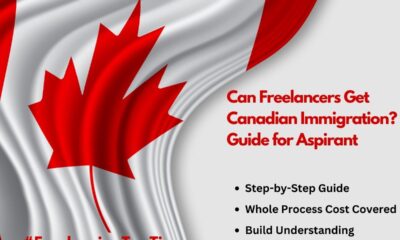
 Visa Guide2 years ago
Visa Guide2 years agoCan Freelancers Get Canadian Immigration? Guide for Aspirant 2023
-

 Freelancing2 years ago
Freelancing2 years agoFreelancer as a Student: Be Your Own Boss in 2023
-
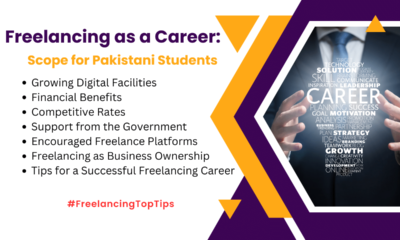
 Freelancing2 years ago
Freelancing2 years agoFreelancing as a Career: Scope for Pakistani Students 2023
-

 Business Networking1 year ago
Business Networking1 year agoMastering the Art of Freelance Guest Blogger in 2023
-

 Freelancing1 year ago
Freelancing1 year agoBest Bank for Freelancers in Pakistan – Mastering Your Money
-

 Money Management2 years ago
Money Management2 years agoEmbracing BRICS Currency: Financial Advice for Freelancers
-
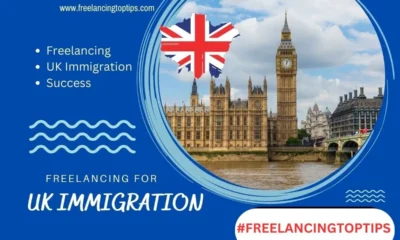
 Visa Guide2 years ago
Visa Guide2 years agoFreelancing for UK Immigration 2023 – Your Ticket to Success
-

 Business Networking1 year ago
Business Networking1 year agoMaximizing Financial Mastery 2023: Strategic Accountant for Freelancers & Tax Optimization


